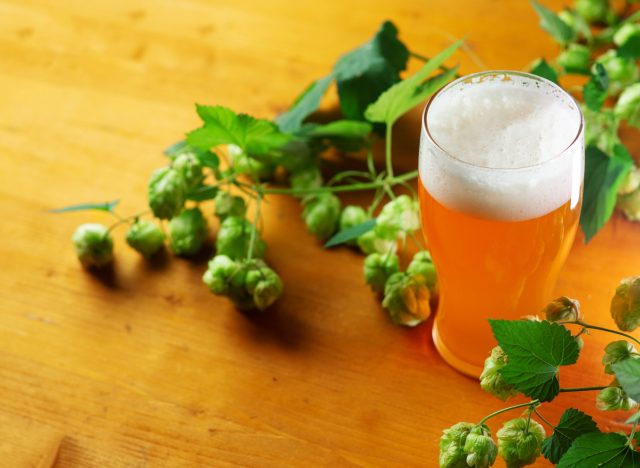Hop growers stay flexible as craft beer sector evolves
By Jessica MasonHop farmers in the US are having to adapt growing plans and contracts while beer sector volatility remains an issue.

In a deep dive into growing and ingredients plans, hop farmers stated that moving quickly with beer trends could lead to business success. But warned that leaving long term contracts behind them offered the best approach to changing trends.
Hop Alliance co-owner Brian Tennis revealed via PorchDrinking, that his business is “busier” than it has ever been” and admitted that Hop Alliance is up 9-10% over last year’s sales, but said that the way that sales are happening now has adapted.
Tennis explained: “People have gone from buying huge quantities to buying smaller quantities more often” and said that this means that brewers are keen right now on keeping hop inventories in their own coolers very low and instead are “doing a lot more ‘JIT’ [just-in-time] ordering.”
According to Tennis: “A lot [of brewers] are either doing away with contracts completely or are only contracting for a year or two out. You don’t want to contract five years out for a core beer and if that beer fizzles, you’re stuck. Instead of just Citra, Mosaic, Amarillo and other propriety varieties, we’re seeing a swing toward more public varieties [which anyone can grow as nobody owns it]”.
He added: “I hope brewers keep brewing with public hop varieties, because those are critical to small independent growers. It gives us an opportunity to be relevant and stay in business. If it’s a hot variety, we can grow it. Keep supporting public varieties.”
Partner Content
Tennis revealed that the limitations imposed on small growers regarding which varieties they can grow are compounded by the fact that the US hop market currently has a substantial surplus of hop varieties like Citra and Mosaic, causing prices to become affected.
He explained: “It all depends on those larger farms. They really dictate what’s going on in the industry. There are millions of pounds in cold storage going back four to five years. We may be stuck with this for more than just a couple years.”
Similarly, Colorado’s Billy Goat Hop Farm co-founder Audrey Gehlhausen reminisced about starting the business in 2017 and explained: “The prices were going up, and it seemed like a good industry to get into at the time” but said that times have changed and now “there’s no reason for breweries to have contracts or commit to anything price-wise. There’s stuff that’s dropped dramatically in price, and that’s affecting us. Brewers have a lot of options as far as where they’re getting their hops and at lower prices, so it’s hard to compete with that. We’re selling to a lot of small breweries who use 100-300 pounds a year of the varieties we’re selling. You have to sell to a lot of people to make that work.”
Looking at the positives, Ohio’s Zachrich Hop Yard co-owner Nick Zachrich described the craft beer sector as one that is constantly evolving and hinted that when a grower worked well with a smaller brewer they often retained that secret for themselves.
Zachrich said: “There’s still more breweries being opened up and being thought about and planned for, so there’s always more opportunity” and described the business as “like that fishing hole around the corner that nobody is supposed to know about”.
Looking at the way beer trends and with it hop trends were changing, Zachrich described Cascade a “confidence builder” but also admitted that he has had success with Cashmere—a variety which has reportedly seen its popularity take a nosedive in the US in recent years, but despite its variability, is still a current strong seller for his business and suggested that the sector is not done with that variety just yet.
Related news
Why Wye Valley Brewery has renamed its flagship beer




